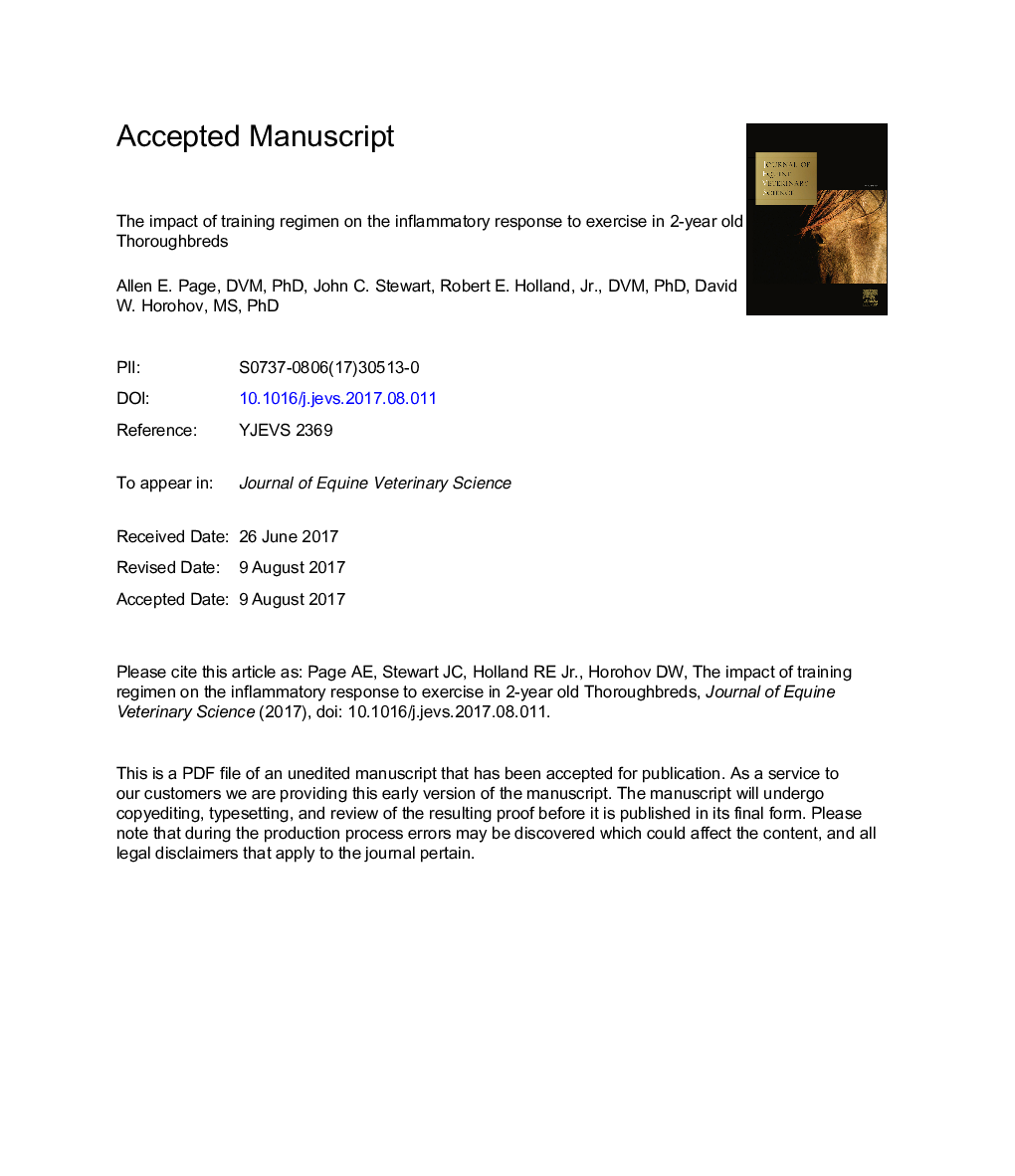| Article ID | Journal | Published Year | Pages | File Type |
|---|---|---|---|---|
| 5535396 | Journal of Equine Veterinary Science | 2017 | 20 Pages |
Abstract
Previous work has demonstrated that 2-year-old horses in race training experience a decrease in inflammatory cytokine production as work at higher speeds progresses. The goal of this study was to determine whether training methods influence inflammatory gene production in 2-year-old horses; as such, two groups of horses trained using different high-speed training regimens (traditional, twice weekly, flat-track training on an all-weather surface vs. once weekly training on a grass track and regular work over undulating hills) were enrolled in this study. Peripheral blood samples were obtained on a weekly basis to measure the in vivo inflammatory mRNA expression of 10 different markers. Relationships between the markers were analyzed, and an Inflammation Score (IS) created from the average of all 10 markers for comparison between the two different training groups. Overall, while there were multiple marker relationships between the groups that were expected based on established inflammatory pathways, there were also relationships seen only in one group instead of the other, including a novel, positively correlated relationship between IL-17 and VEGFA in the traditional training group. Additionally, over time, the traditionally-trained group experienced a significantly increased IS compared with the grass-trained group, demonstrating that some training regimens may induce more inflammation in horses than others.
Related Topics
Life Sciences
Agricultural and Biological Sciences
Animal Science and Zoology
Authors
Allen E. Page, John C. Stewart, Robert E. Jr., David W. Horohov,
